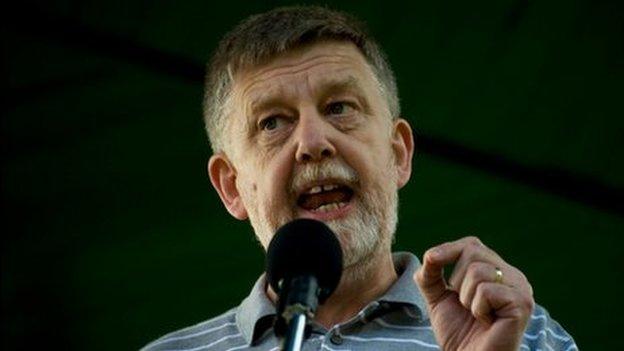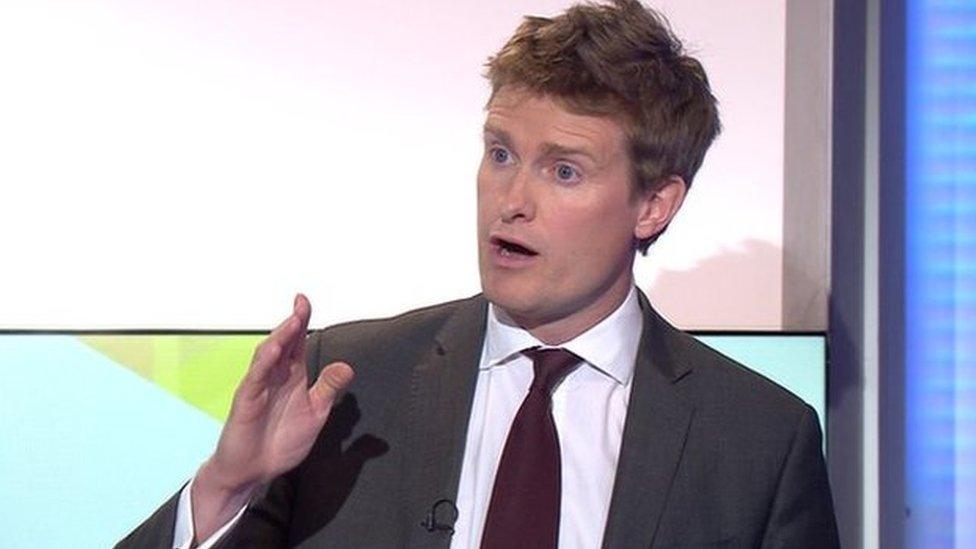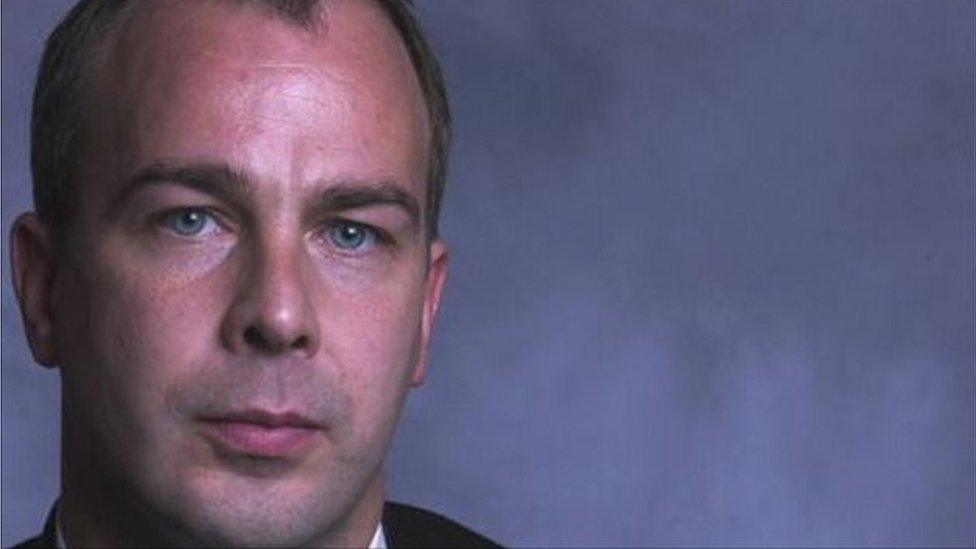Is it Labour Momentum or Labour Pains for Midlands MPs?
- Published
- comments

Dave Nellist has been a Coventry city councillor for 14 years and has stood in successive Euro elections
"A party within a party"
Those of us with long memories feel as if we've been here before.
"A party within a party." "Hard Left Entryism." "The Loony Left." Until now they all had the ring of something from a bygone age.
There are indeed genuine echoes of the epic furore over the Militant Tendency which reached its peak of influence during the 1980s. That culminated in Neil Kinnock's exocet speech to Labour's 1985 party conference in which he berated Derek Hatton's Militant-controlled Liverpool City Council: "A Labour council....a LABOUR council!" for "hiring taxis to scuttle around a city handing out redundancy notices to its own workers". At which point Eric Heffer, the Left wing Labour MP for Liverpool Walton, famously stormed out.
That was the beginning of a purge which led ultimately to two Militant MPs being expelled from the Labour Party for their membership of "a party within a party". One of them, Dave Nellist, was at that time a backbench colleague of Jeremy Corbyn, having represented Coventry South East since 1983.
Militant subsequently became the Socialist Party. Mr Nellist has remained a high-visibility presence as a Coventry city councillor and as a candidate in successive European elections, most recently for the Trade Unionist and Socialist Coalition (TUSC) of which he is the national chairperson.
The parallels with what the press is calling the "civil war" currently gripping Mr Corbyn's Labour Party are obvious. But there are important differences too.
Militant was a Trotskyite faction within the Labour Party.
Momentum, widely seen as a 2015 sequel, has undoubtedly grown out of Mr Corbyn's leadership campaign and many of its activists are Labour supporters or members. But unlike Militant, it is not a faction within the party. It embraces members of the Socialist Workers' Party, the Stop the War Coalition and Left Unity.
When reselection becomes de-selection

Stoke North Labour MP Tristram Hunt could be a casualty of the Boundaries Review
"When a man knows he is to be hanged it concentrates his mind wonderfully". So said Samuel Johnson. And it's certainly the threat of imminent de-selection that's concentrating the minds of many of our Labour MPs: especially the suggestion that Momentum has licence under Jeremy Corbyn's leadership to instigate a 'purge'. Their fears are sharpened by the government's clear determination to press ahead with the review of parliamentary constituency boundaries to reduce the number of MPs by 50 and to take account of population changes.
(The Boundaries Review had been expected in the middle of the last Parliament, but it fell foul of the Conservatives' dispute with their Liberal Democrat coalition partners over Lords reform.)
Reselection issues in re-drawn seats could well provide opportunities for local activists to drop the 'R' and insert 'D'. Take Stoke-on-Trent, for example. It is expected to lose one of its three, so one possible casualty could be the former shadow education secretary, the Stoke Central MP Tristram Hunt, who resigned from the Shadow Cabinet when Mr Corbyn was elected leader.
Last week's vote on Syrian air strikes is the first of what could become a series of binary issues exposing the depth and bitterness of the party's divisions and putting the survival instincts of many post-Blairites to the test.
In a BBC Radio 4 interview, Dave Nellist was asked about accusations that the 66 Labour MPs who voted with the government in support of air strikes had been "bullied". While opposing personal abuse, he told The World Tonight programme there was a clear case for the "right to de-select Labour MPs". He called for other "far-reaching changes" to be made so the Labour Party could implement Mr Corbyn's anti-war, anti-austerity policies.
Mr Nellist may be one of the people who the Guardian columnist Polly Toynbee had in mind when she spoke laughingly about the old radicals from the Militant days suddenly reappearing on the scene, as if they had spent all the intervening 30 years quietly waiting in the wings to make their comebacks, by popular demand.
What now for Labour's "Moderates"?

Paul Farrelly, Newcastle-under-Lyme MP, has accused Jeremy Corbyn of an "abject lack of leadership"
"Moderates" is not the term I would choose to use. It can easily be interpreted as an expression of approval. But it is the buzz word of our time so, having registered my protest, I will bow to the inevitable and use it.
"Moderates", like the former defence minister, the Warley MP John Spellar; and the former business editor of The Observer, the Newcastle-under-Lyme MP Paul Farrelly; are both so profoundly unimpressed by Mr Corbyn's handling of the Syria debate that they think he should "consider his position": (that's politicians'-speak for resign).
On BBC Radio Stoke, Mr Farrelly accused Mr Corbyn of "an abject lack of leadership" and described him as "a source of division" within the party.
This week's Sunday Politics Midlands will examine what this means for Labour's chances of rebuilding the party after their two successive general election defeats.
Joining me in the studio will be Sion Simon, a West Midlands MEP who has for many years been a close friend and colleague of the deputy leader and West Bromwich East MP Tom Watson. I will also be talking to the Conservative MP for Cannock Chase Amanda Milling. Hers is a classic example of those marginal seats in Midlands industrial towns which Labour must win back before they can entertain any hopes of returning to government, but where David Cameron's party increased its majority in May. Also with us will be the aforementioned Dave Nellist, the chair of the Trade Unionist and Socialist Coalition.
And I hope you will join me too at 11.00 this Sunday 13 December on BBC One.